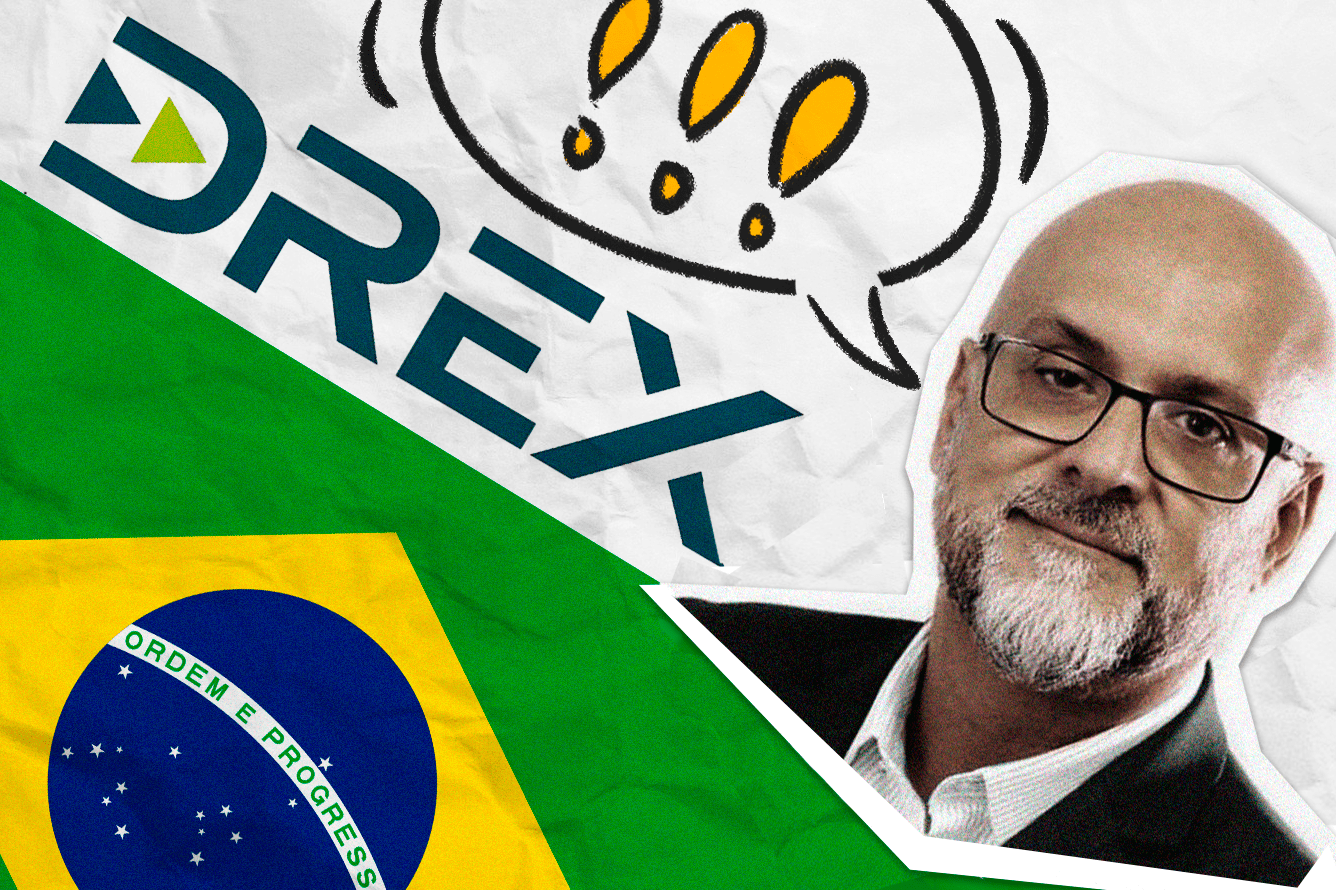
The Central Bank of Brazil (BCB) announced the official name of its Central Bank Digital Currency (CBDC) platform in a live broadcast on Youtube on Monday, August 7.

DREX, which stands for Digital Real Electronic Transactions, is designed to be a platform for the deployment of smart contracts that will allow for a significant reduction of the intermediation costs of financial products and services.
“With this technology, purely operational costs can be automized, lowering the costs of intermediation and consequently making these financial products and services more accessible to the population.”
To announce the new platform and discuss the impact that the digital currency will have on the financial system and the daily lives of Brazilians, moderator Gustavo Igreja was joined by Administrative Coordinator of the Real Digital Project Fabio Araujo, and Aristides Cavalcante, Head of the Innovation and CyberSecurity Office at BCB.
PIX vs Real Digital
Brazil entered the instant payments scene in late 2020 with the release of PIX. As a free-to-join service that could be accessed with nothing but a phone number, PIX led to the rapid onboarding of millions of unbanked Brazilians into the financial system. One year after its launch, there were more people using PIX than traditional bank accounts to perform everyday transactions.
In the age of instant digital payments, one of the great concerns of Central Banks regarding CBDCs is that adoption doesn’t take off due to a lack of a strong value proposition. If transactions are already digital, immediate, and free of cost, where is the need for a digital version of the national currency that basically just replicates this functionality?
Fabio Araujo guaranteed that “PIX and Real Digital are very different”. While PIX was created to simplify payments that happen within the lines of the traditional financial system, the digital real’s goal is to disrupt those lines by lowering intermediation costs which will democratize access to financial services and products.
But how does a digital currency do this?
Real Digital vs DREX
What the Central Bank revealed on Monday is that the digital real is a much more ambitious project than was initially expected.
The novelty is not so much the digital currency itself, as the platform that was announced and is currently under development - DREX, which will enable users to deploy smart contracts using the digital real.
“As the economy advances and more and more things are tokenized, the platform will allow the private sector to build solutions to make transactions in a more efficient and cheap way to the population.”
A platform where all things are tokenized (cars, houses, NFTs, or music) and can be traded with safety and privacy at a low cost has the potential to change the economic dynamics of a country riddled with inequality.
With asset tokenization also comes asset fragmentation which allows for better asset management and tailored-made financial services and products.
“We are hoping that the products that are already being offered today are offered in more varied ways, catering to the specific needs of people […] at a lower cost.”
Brazilians still worried about state power
In July, Pedro Magalhães, a Brazilian full-stack developer, discovered functions in the currency’s smart code that give the Central Bank power to freeze and unfreeze assets, move funds, and freeze accounts. Immediately there was an outcry, with Brazilians fearing that Real Digital would give the state too much power.
On Monday’s live session, the public once again expressed its concerns about government control in both comments and questions made to the BCB team.
Answering the audience’s questions, both Fabio Araujo and Aristides Cavalcante, assured that the state will have no more or less power than it currently has in the present system, stating that “We are going to reproduce exactly the same types of relations that exist today in the financial system.”

